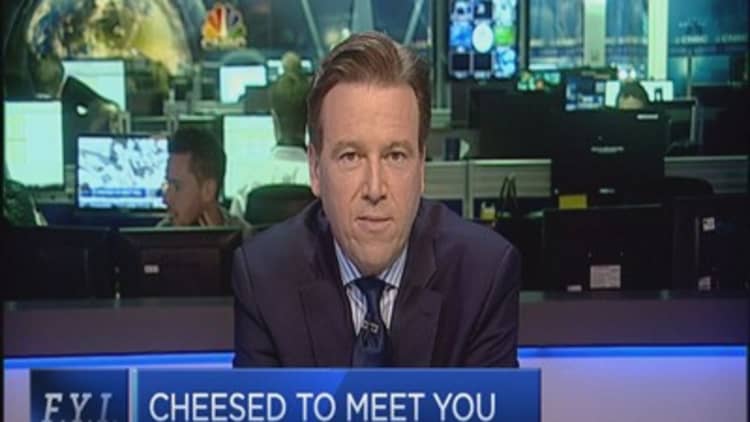
Russian authorities continued their clampdown on food imported from the West with a symbolic bulldozing and burning of confiscated food – despite the country's people struggling with rising food prices.
On Thursday, Moscow marked the anniversary of the first sanctions instigated against some Western foods with the mass destruction of cheese, fruit and vegetables.
More than 50 tons of peaches, nectarines and tomatoes and nearly 30 tons of cheese and 28 tons of meat products were either destroyed or seized on Thursday, according to Russia's agricultural watchdog.
Images of a bulldozer running over piles of cheese were broadcast on Russian television.
This follows a year in which Russians have had increasing difficulty getting hold of imported food – and when food prices have risen by nearly one-fifth.
Moscow imposed import bans on Western food products ranging from French brie to Polish apples last year in retaliation for international sanctions on Russia following its annexation of Ukraine in March 2014.
The images of confiscated food being destroyed were criticized by some politicians and members of the public, who said products should instead be distributed among the poor.
However, Alexander Tkachyov, the Russian minister of agriculture, told Russian television: "We are following international practice. If you break the law with contraband then it should be destroyed."
Since the import ban, Russians have either had to find substitutes from other trading partners, buy on the black market, or look out for imported goods that have slipped through the net, possibly through being labelled inaccurately.
A Kremlin-backed food vigilante group known as "Eat Russian" has started scouring upscale restaurants and delicatessens looking for trafficked tomatoes and proscribed parmesan.




